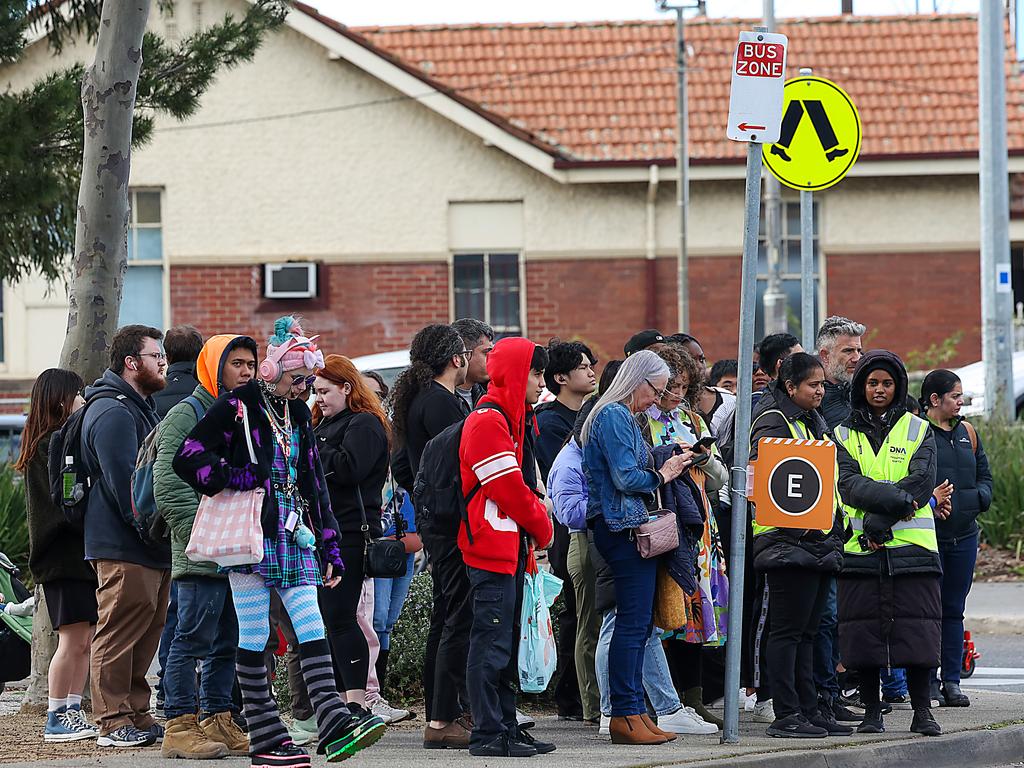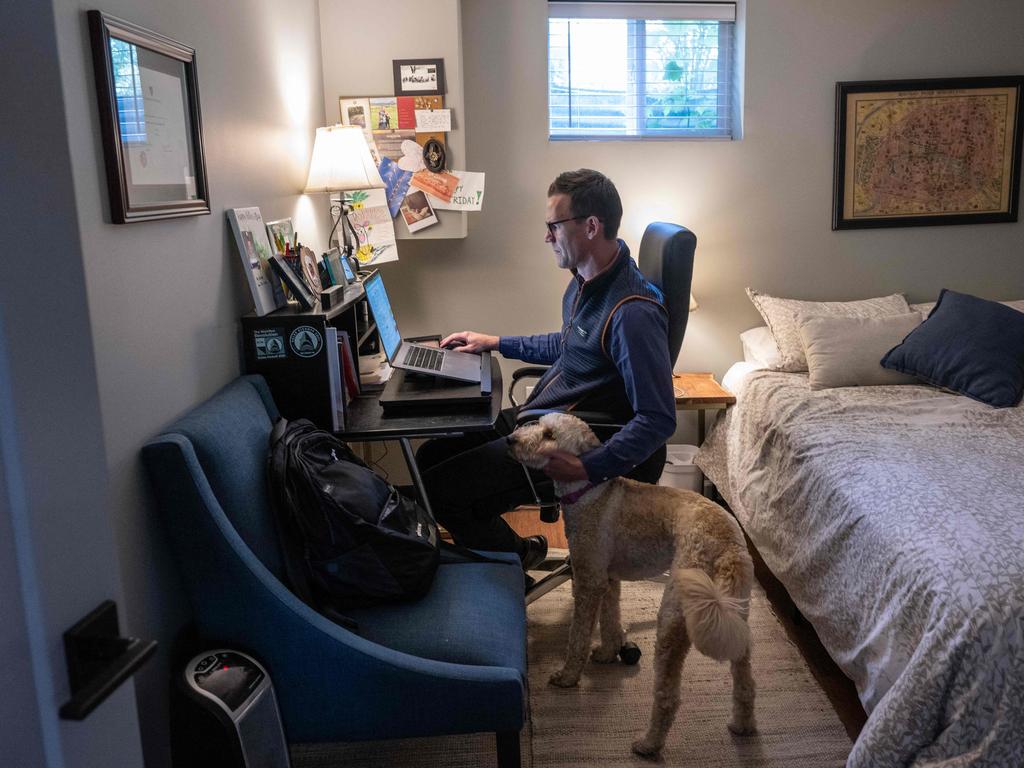Working from home leads to declining productivity and unhappiness, studies find
As major companies including CommBank increasingly crack down on working from home, new research suggests the bosses have a point.

As major companies including CommBank increasingly crack down on working from home, a growing body of evidence suggests bosses may be justified in wanting staff back in the office.
This week, the Finance Sector Union said hundreds of CommBank staff had written to complain about the bank’s 50 per cent office time mandate, with some threatening to quit.
“The pandemic showed how well working from home can be achieved and the FSU believes that a new benchmark on remote work has now been set,” FSU National Secretary Julia Angrisano said.
But a flurry of studies in recent months have found that, contrary to what many employees claim, working from home decreases productivity, while also increasing anxiety, depression and loneliness and limiting professional development.

‘4pc productivity decline’
Last month, for example, a paper published by the Federal Reserve Bank of New York looked at the productivity of call centre workers at a major online US retailer, finding a marked negative impact of the work-from-home shift during Covid.
“Prior to Covid-19, remote workers answered 12 per cent fewer calls per hour than on-site workers,” Harvard University doctoral students Natalia Emanuel and Emma Harrington wrote in the working paper.
“When the call centres closed due to Covid-19, the productivity of formerly on-site workers declined by 4 per cent relative to already-remote workers, indicating that a third of the initial gap was due to a negative treatment effect of remote work.”
That suggested the remaining 8 per cent productivity gap was due to “negative worker selection into remote work”.
Not only did employees answer fewer calls working from home, but the paper found remote work degraded call quality — customers were kept on hold for nearly 11 per cent longer, and call back rates increased, suggesting their initial question went unanswered.
“A firm may hesitate to offer remote work for two reasons. First, remote work might reduce workers’ productivity. Second, remote work may attract less productive workers to the firm,” the authors wrote in a subsequent blog post.
“In the latter case, firms could be stuck in a prisoner’s dilemma — all firms might be better off offering remote work, but any individual firm that offers remote work may disproportionately attract less productive workers.”
As The Economist noted this week, the Fed paper came hot on the heels of a raft of studies that reached similar conclusions.
One study of data-entry workers in India found those working from home were 18 per cent less productive. And another looking at employees of a large Asian IT firm found productivity declined as much as 19 per cent compared to prior in-office performance.

Fewer promotions
In their paper, Drs Emanuel and Harrington also found remote work “negatively impacts workers’ career trajectories”, mirroring similar findings from earlier studies.
“Remote work reduces the frequency of one-on-one meetings with managers and training sessions devoted to developing workers’ skills,” they wrote.
“Before the offices closed, remote workers were promoted at less than half the rate of their onsite peers; once the offices closed, this difference in promotion rates disappeared.”
They added, “Remote work’s promotion penalty may contribute to negative selection if productive workers who anticipate on-site promotions shy away from remote jobs.”
Last month, IBM’s global chief executive Arvind Krishna warned the company’s 260,000 staff that while he was not ordering them back to the office yet, those who continued to work remotely would struggle to get promoted.
“Being a people manager when you’re remote is just tough because if you’re managing people, you need to be able to see them once in a while,” he told Bloomberg.
“It seems to me that we work better when we are together in person.”

Harder to collaborate
Silicon Valley entrepreneur David Sacks recently joined the growing chorus speaking out against remote work.
In a viral Twitter thread, Mr Sacks highlighted the difficulty collaborating virtually, saying the value of “managing by walking around” and solving problems “cannot be underestimated”.
“Every interaction has to be scheduled, which means a lot of information-sharing doesn’t happen. Remote is a great lifestyle, not a way to build a great company,” he wrote.
AI tech executive Florent Crivello had earlier made similar comments, outlining how remote work “raises co-ordination costs” due to technology limitations causing the team to be “less aligned”.
“It’s hard to overstate the importance of this misalignment,” he wrote.
“We in tech are building pure thought-stuff — the things we build are like icebergs, 99 per cent invisible. The quality of our work is a function of the alignment of our mental models about the stuff below that water line. And remote makes it harder to reach that alignment.”
In the Fed study, many workers noted difficulty communicating with colleagues. One respondent said her biggest challenge was “people not answering you in chat and managers not being readily available”, while another said she missed “having neighbours to turn to for assistance”.

More depressed
Better work-life balance is an obvious reason for employees to value remote work — less time commuting, more time to spend with family, doing school pick-ups, cooking and cleaning.
It’s why remote work has quickly emerged since Covid as one of the most sought-after perks, with surveys showing employees are willing to accept a lower salary in return.
But a study earlier this month by researchers from the Australian National University, University of Newcastle and Macquarie University found not only was the average worker less productive at home, but they were also more anxious, depressed and lonely.
The research, which is not yet peer-reviewed, was based on 2400 employee responses across five surveys between 2021 and 2022.
According to The Australian Financial Review, the study found that each additional day an employee worked from home led to a corresponding deterioration in productivity, efficacy, turnover intentions, depression, anxiety and loneliness.
“We found that productivity and professional efficacy both dropped when people were working from home more,” report co-author Professor Kieron Meagher told the newspaper.
“If your manager makes your job suitable for working from home — provides you with support, makes sure there isn’t conflict and there’s lots of co-ordination with co-workers — then those negative effects start to go away. And presumably, they could go away entirely if an organisation handled it well enough.”






